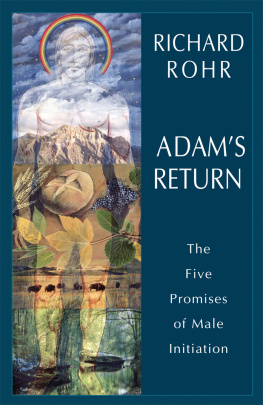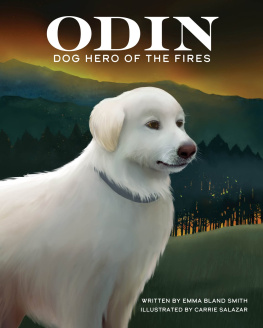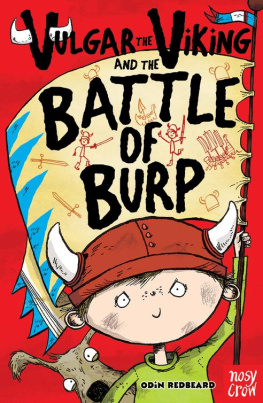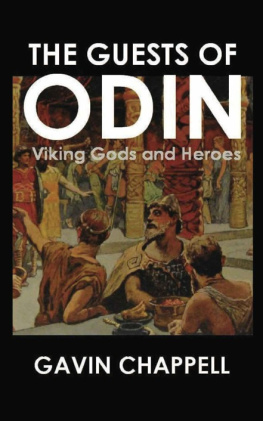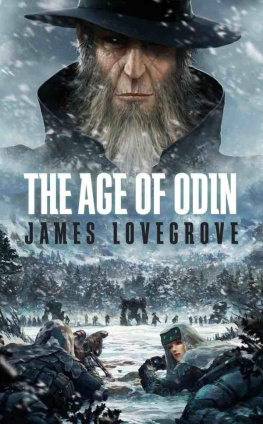Richard Rudgley - The Return of Odin
Here you can read online Richard Rudgley - The Return of Odin full text of the book (entire story) in english for free. Download pdf and epub, get meaning, cover and reviews about this ebook. year: 2018, publisher: Inner Traditions/Bear & Company, genre: Religion. Description of the work, (preface) as well as reviews are available. Best literature library LitArk.com created for fans of good reading and offers a wide selection of genres:
Romance novel
Science fiction
Adventure
Detective
Science
History
Home and family
Prose
Art
Politics
Computer
Non-fiction
Religion
Business
Children
Humor
Choose a favorite category and find really read worthwhile books. Enjoy immersion in the world of imagination, feel the emotions of the characters or learn something new for yourself, make an fascinating discovery.

- Book:The Return of Odin
- Author:
- Publisher:Inner Traditions/Bear & Company
- Genre:
- Year:2018
- Rating:4 / 5
- Favourites:Add to favourites
- Your mark:
- 80
- 1
- 2
- 3
- 4
- 5
The Return of Odin: summary, description and annotation
We offer to read an annotation, description, summary or preface (depends on what the author of the book "The Return of Odin" wrote himself). If you haven't found the necessary information about the book — write in the comments, we will try to find it.
The Return of Odin — read online for free the complete book (whole text) full work
Below is the text of the book, divided by pages. System saving the place of the last page read, allows you to conveniently read the book "The Return of Odin" online for free, without having to search again every time where you left off. Put a bookmark, and you can go to the page where you finished reading at any time.
Font size:
Interval:
Bookmark:
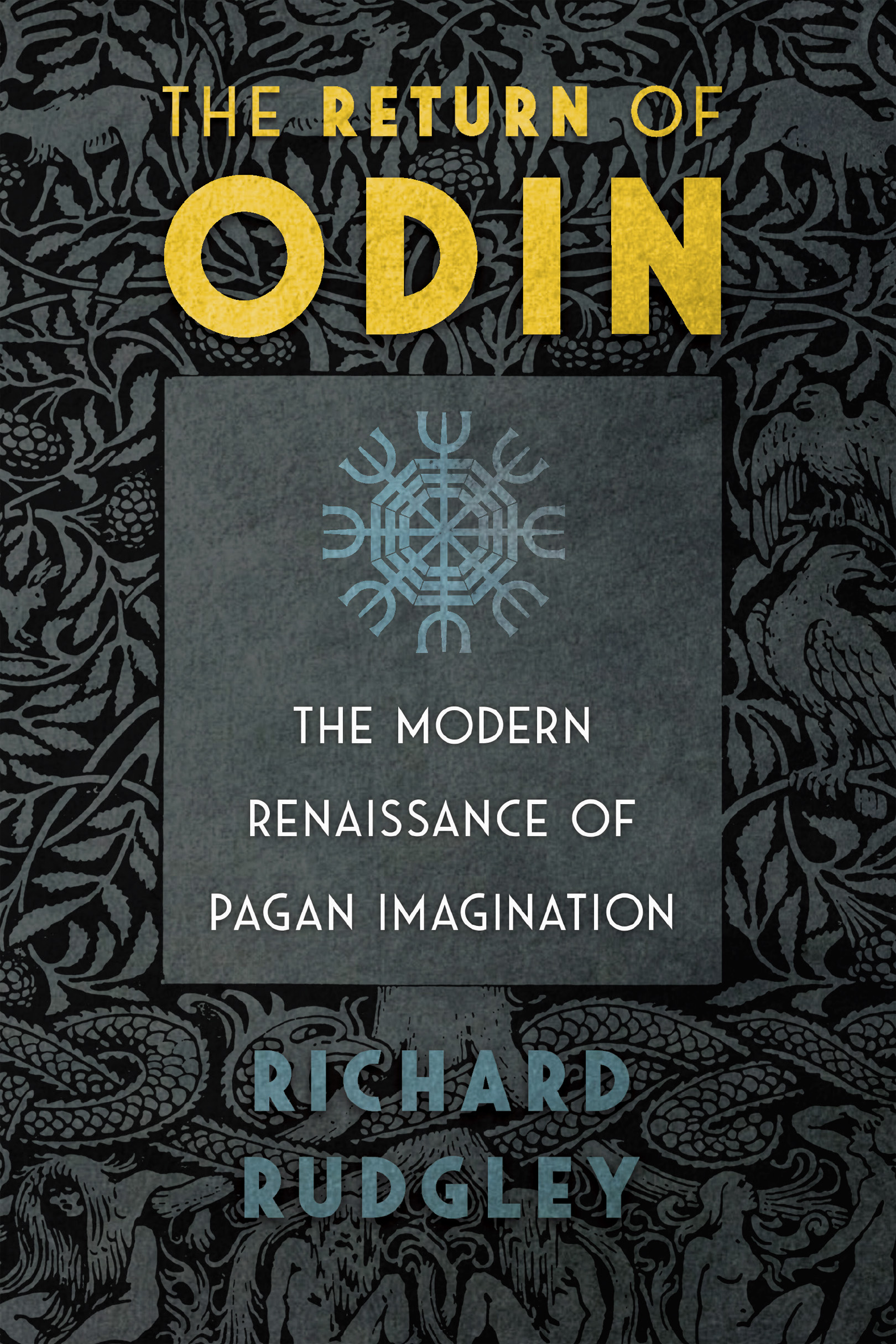
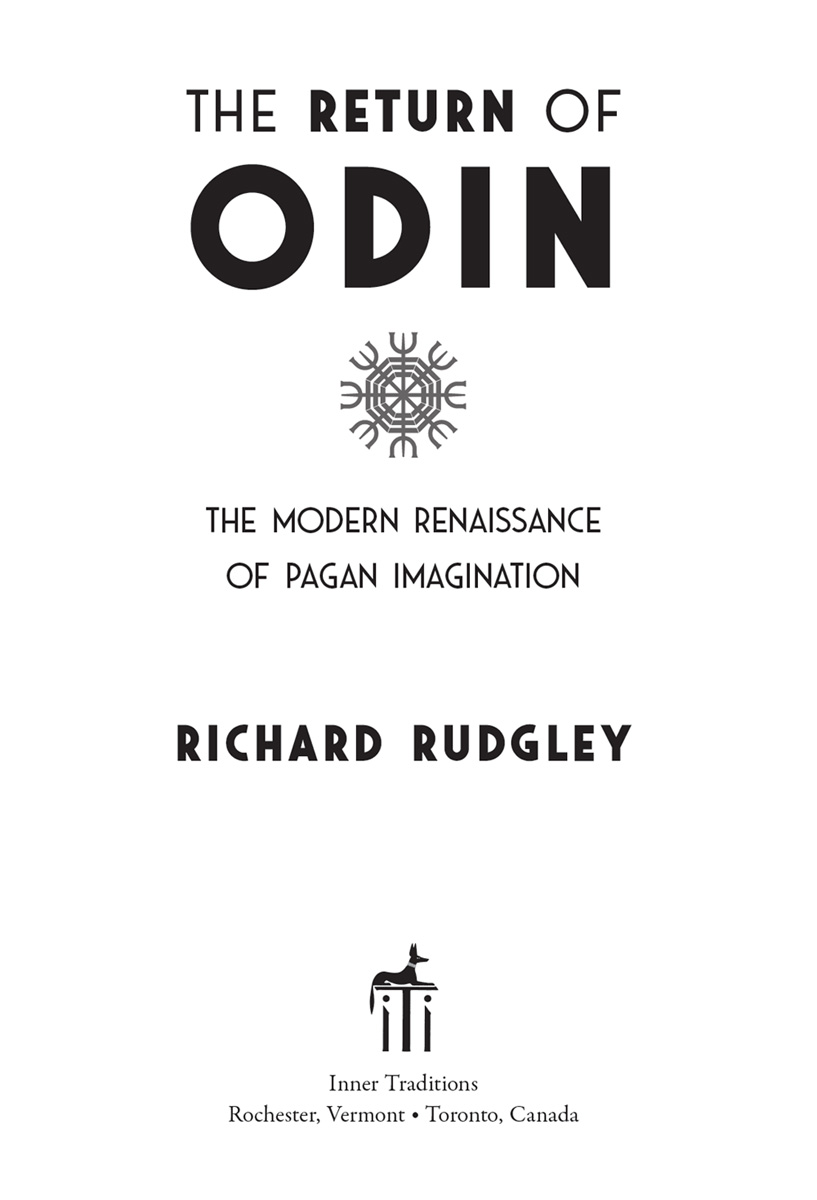

To the followers of Odin: Past, Present, and Future
THE RETURN OF
ODIN
Richard Rudgley understands the god Odin, who goes wherever knowledge is to be found no matter the danger involved. Thus, we find Rudgley delving into many areas of infamy in The Return of Odin because that is where the search leads. To do this is brave, and I salute any author who dares it.
IAN READ, FORMER EDITOR OF RNA MAGAZINE, RUNE MASTER WITH THE RUNE-GILD, AND FOUNDER OF THE BAND FIRE + ICE
The Return of Odin takes off from Carl Jungs prophecy of the reemergence of Odin and his repossessing the spirits and souls of the Germanic people. Well-written and broad in its overview, I am sure some parts will cause controversy with those following the resurrected Germanic spiritual path. It makes for thought-provoking and stimulating thinking.
ROBERT N. TAYLOR, AUTHOR OF REMNANTS OF A SEASON
PREFACE TO THE NEW EDITION
THE GATHERING STORM
In the years since the first edition of this book was published, the renewed cultural and psychological importance of the Norse god Odin has continued to grow in the Euro-American world. Carl Jung characterized this multifaceted deity (whom he calls by his German name Wotan) as the herald of the winds of change that manifested in myriad forms. He was the underlying inspiration for the Wandervogel, the collective name given to the German youth groups that arose around the turn of the twentieth century (see plate ) and who foreshadowed the hippies of a later era in their countercultural lifestyle. Jung also saw the stormy nature of the Odinic archetype as the animating force in both the spirituality of Nietzsche and in Hitlers rise to power.
After the Second World War, Odin returned to the shadows once more but this was just the lull before a new storm that in the present book is named the second Odinic experiment, the final outcome of which remains unclear as it is still unfolding in the collective imagination. Jung warned that if this archetype who embodies the Germanic soul was repressed and left unconscious it could result in widespread madness and war. It is well known that the repression of psychic complexes in an individual can lead to mental illness but if these complexes are consciously integrated into the psyche, then health returns through a holistic process known as individuation. In commenting on Jungs views on the Odinic archetype, the New Zealand writer Kerry Bolton has acutely observed that such repression can affect people not just on the individual level but also on the collective level of entire cultures or nations. Thus, a culture or nation requires a parallel process to personal individuation in order to be whole and healthy.
Like their patron god, the numerous religious and occult groups that seek to reintegrate Odin into Western consciousness are known by many names (Norse pagans, heathens, Odinists, and Asatruar among them) and they continue to grow among the cultures and nations of the Euro-American world. As noted later on in this book, the early 1970s saw the simultaneous rise of such groups in Iceland (Asatrarmenn), the United Kingdom (The Odinic Rite), and in the United States (Stephen McNallens Viking Brotherhood, which later became the Asatru Free Assembly and finally the Asatru Folk Assembly, which is still flourishing today). At their inception, these groups were unaware of each other and so we are presented with a case of synchronicity, which in Jungian terms refers to meaningful coincidences. The archetype of Odin was clearly working in mysterious ways.
More recently the collective individuation process took another significant step forward when the same three nations almost concurrently founded community temples (hofs) in his honor, again with no foreknowledge of each others intentions. In 2014 in Newark-on-Trent, Nottinghamshire, England, the Odinist Fellowship reconsecrated an old stone chapel to their god. In the United States the Asatru Folk Assembly founded the Newgrange Hof in Brownsville, California, the following year; while in Iceland a temple has been under construction on the outskirts of Reykjavik with a planned completion in 2018.
Alongside the purely religious aspects of this renaissance are other sociocultural struggles both within the community of Odins worshippers and with the wider world. In his 1993 pamphlet Thunder from the North: The Way of the Teutonic Warrior Stephen McNallen discusses various Norse deities and the warrior types that they embody. For McNallen, Odin exemplifies military intelligence and covert operations. This makes sense given that he is at once a warrior, a weaver of spells, and a wordsmith and so is both present on the battlefield and in the midst of the war of wordsan ideological struggle that is both political and metapolitical in its nature. The two main factions with the community of Odinists are the Folkish and Universalist camps. The first believe that Odinism is the folk or tribal religion of the Germanic peoples and as such would be as inappropriate for other peoples as, for example, Navajo religion would be for non-Navajos. This position is clearly aligned with Jungs view of Odin as an archetype specific to the Germans. By contrast the Universalists maintain that Odinism is open to all people regardless of their ethnic or cultural identities. While the two clearly have very different perspectives on their religion they have sometimes managed to coexist with a live and let live ethos. However, very recently they have begun to clash and this increasing polarization has both ideological and political ramifications, especially given that ethnic identity is often a highly emotive subject.
The largest and most well known of the folkish groups in the English-speaking world is the Asatru Folk Assembly, which was led by Stephen McNallen until 2016 when he was succeeded in this role by Matt Flavel. As both its founder and figurehead McNallen is still a very prominent influence on the organization and has become more outspoken on politically related issues since he stepped down. Whether this is simply a coincidence or a conscious decision is unclear but what is certain is that many of his political statements have been made in relation to the growing immigrant crisis in Europe and the perceived threat of Islamic beliefs and populations to the ethnic and cultural fabric of European civilization and its associated freedoms. This increasingly vocal stance from McNallen has resulted in a backlash from many of the Universalist groups who accuse him of racism and have, as a result, become more aligned with each other in the face of the common enemy they see within the Odinist community. It is likely that this polarization will become more pronounced and that the uneasy truce between the two camps will collapse.
The migrant crisis in Europe and beyond has also created a wider fear that the streets are less safe than they were and that the more vulnerable members of society (most notably women) are at risk. The most widely publicized and widespread network of groups that has sought to augment law enforcement with citizens street patrols is the Soldiers of Odin. It was founded in Kema in northern Finland in late 2015. It spread with surprising speed not only in neighboring countries like Sweden, Norway, and Estonia but elsewhere in Europe such as the Czech Republic, Malta, and Northern Ireland. Even more remarkable is its viral proliferation to numerous cities in the United States, Canada, and Australia. The Soldiers of Odin is not a religious movement and while some members are Odinists most are not, but from a Jungian perspective it is highly significant that however arbitrary the name may appear to be, the archetypal god is making his presence known again. Jung predicted that the second Odinic experiment, unlike its predecessor, would be a worldwide phenomenon and the network that is the Soldiers of Odin is yet another sign that he was right. What was not clear when I originally wrote this book was that the migrant crisis would be such a major catalyst in the second Odinic experiment and it is in the light of these developments that this book should be read.
Font size:
Interval:
Bookmark:
Similar books «The Return of Odin»
Look at similar books to The Return of Odin. We have selected literature similar in name and meaning in the hope of providing readers with more options to find new, interesting, not yet read works.
Discussion, reviews of the book The Return of Odin and just readers' own opinions. Leave your comments, write what you think about the work, its meaning or the main characters. Specify what exactly you liked and what you didn't like, and why you think so.

